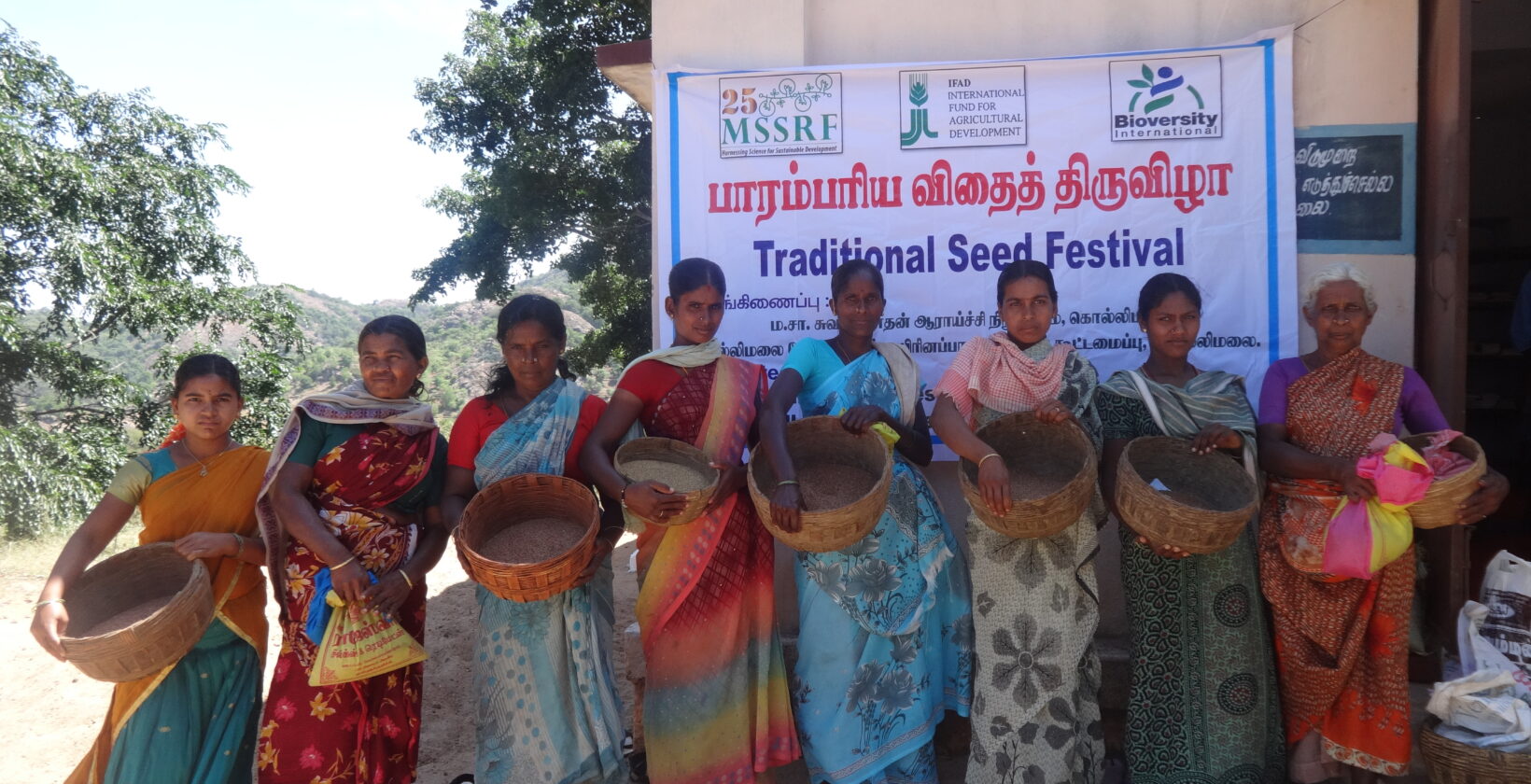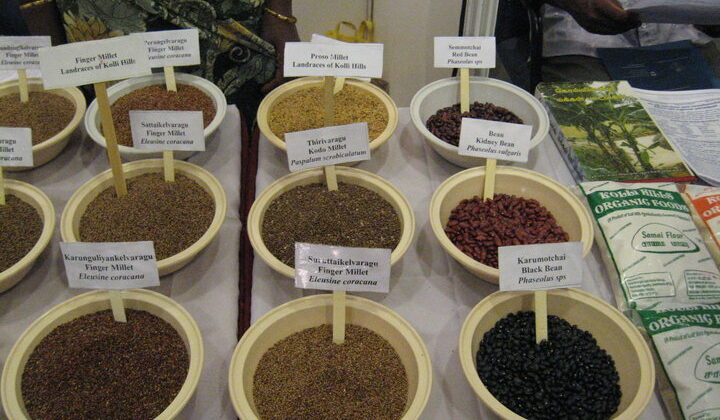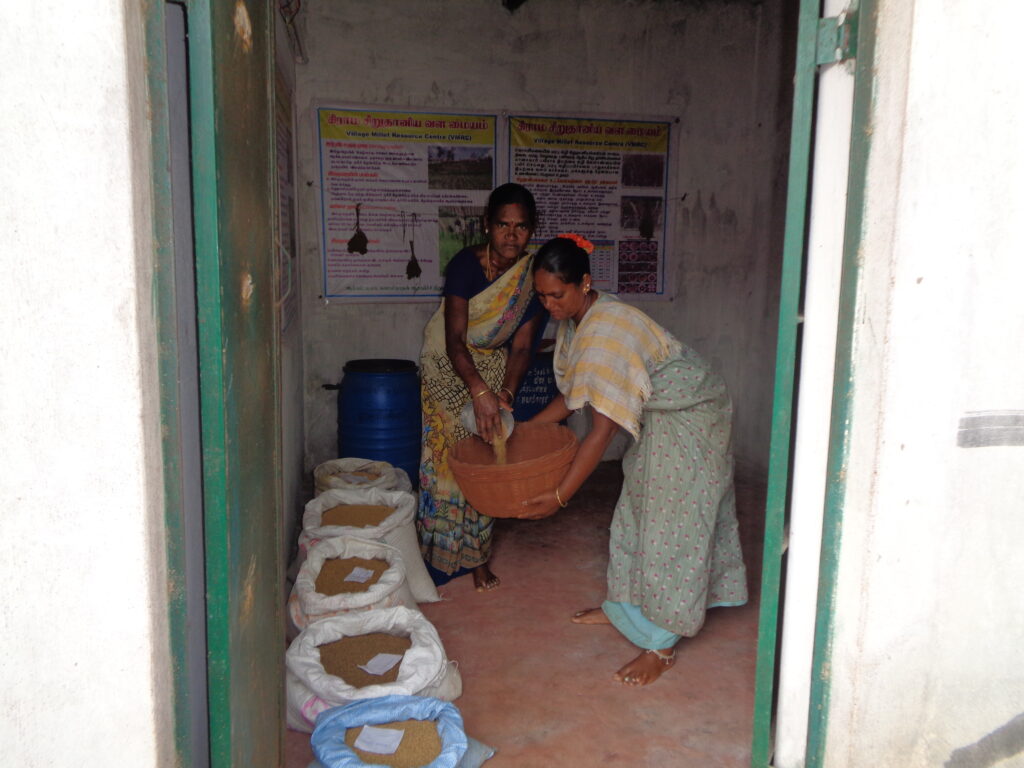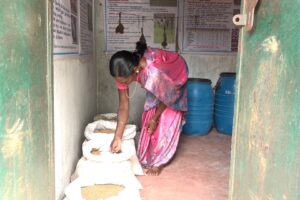
Seed diversity is essential not only for feeding a growing global population but also for enhancing resilience against climate change, which is already affecting food production around the world. India’s community seed banks represent a vital grassroots response to the global challenges facing sustainable agriculture and are an active example of solutions that are better for the environment and for local people.
Seed diversity is crucial for addressing the impacts of climate change on food production, because a wide range of seeds can offer better protection against disease and changing rainfall patterns. The Indian Council of Agricultural Research (ICAR) has been instrumental in releasing new varieties of seeds—ranging from staples like rice and wheat to oilseeds, pulses, and sugar crops—since the early 1960s. Over the decades, more than 6,100 varieties of field and horticultural crops have been introduced by the government. However, the more recent arrival in India of private seed companies – particularly since the early 2000s – has overshadowed the public sector’s efforts.
A 2018 study on seed companies in Asia identified India as a major seed hub, with over 15 private seed firms investing in breeding and production activities. The study, published by the World Benchmarking Alliance with support from the United Nations Foundation, highlighted firms such as Thailand-based East-West Seed, Bayer, and Syngenta as being the leading seed suppliers in India.
Many farmers are now struggling with the high costs of seeds, as the traditional practice of saving a portion of the harvest specifically for seed has largely vanished with the growth of open seed markets. Here, commercially produced varieties offer huge yields but high licensing restrictions, meaning that farmers often cannot save seed as they might have done in the past, because they do not own it.
Numerous activists, such as the renowned Vandana Shiva, have voiced concerns over the proliferation of private seed banks in India. Shiva argues that seed monopolies could lead to a loss of diversity, increased seed costs, and a rise in chemical use in seed production. Her advocacy emphasizes the importance of community seed banks in preserving agricultural diversity and supporting local farmers.
Despite the dominance of private seed companies, numerous community-based seed banks are now thriving across India, helping farmers to get access to lost varieties without paying high charges. One notable example is the seed bank initiative in Kolli Hills, Tamil Nadu, which demonstrates the potential of local solutions using native seeds to prevent private firms from dominating the local market.
The Kolli Hills region is home to the Mayalali tribes, who have been cultivating traditional millet varieties with the support of community seed banks. The initiative began in 2009 with the establishment of a single seed bank. Today, there are seven such banks operating across the region. These seed banks have successfully conserved over 20 varieties of millet that had not been previously cultivated for nearly a decade.

This year, approximately 150 tribal farmers returned nearly two tonnes of millet seeds to the bank as repayment for the seed loan they received the previous year. Partnering with the MS Swaminathan Research Foundation (MSSRF), the Kolli Hills seed bank project has enhanced access to traditional seeds for over 3,000 farmers in the region. Tribal women, who are highly skilled in millet cultivation and processing, manage all the seed banks.
From July to September each year, farmers in Kolli Hills sow their millet crops, with harvests typically ready between January and March. During these periods, seed festivals are organized by local self-help groups, featuring stalls that showcase value-added food products made from different millet varieties.
Vennila Suriyakumar, a 34-year-old leader of a community seed bank project in Alathur Nadu panchayat, explains the impact of the seed bank on her community.
“When we brought a group of farmers together to get involved in the seed bank, we discovered there were five varieties of finger millets, two varieties of porso millets, and three varieties of foxtail millets. However, not many of these were being cultivated. We have created a value-added store where farmers can sell food items made from millets. Many tourists were surprised and even placed orders for ready-mix food items,” Vennila explains. She notes that her seed bank usually has about 100 kilograms of various seeds available for farmers.

As farmers return twice the amount of seeds they initially borrowed, the seed bank’s reserve grows over time. Poongodi Arunchalam, a 35-year-old seed bank director, highlights the logistical challenges of operating in the Kolli Hills.
“The region’s 70 hairpin bends make transportation difficult. However, social media and websites have allowed us to receive pre-bookings and stock our stalls for tourists. We are also planning to develop an online sales platform for home deliveries”.
Kalimuthu, a 45-year-old farmer, is among those who have benefited from the seed bank. He reflects on the shift from traditional millet cultivation to cash crops like tapioca and coffee. “Two decades ago, many farmers, including myself, focused on cash crops because they offered better revenue compared to millets. Over time, millet cultivation declined as our families stopped consuming them regularly. We only used millets for traditional festivals and rituals. Thanks to the seed bank, we have resumed millet cultivation”.
The resurgence of millet cultivation has had a profound impact on the tribal community.
“Our ancestors relied on millets as their staple food, consuming rice only occasionally. Our generation shifted to rice, but now, with medical advice and a renewed focus on traditional foods, we are returning to a millet-based diet. Youngsters who were previously unfamiliar with millet preparation are now embracing these traditional foods,” Kalimuthu observes.

The success of community seed banks in Kolli Hills illustrates the potential for local, sustainable agricultural practices to address broader challenges. By reviving traditional crops and fostering local entrepreneurship, these seed banks are not only preserving agricultural biodiversity but also enhancing food security and community well-being.
The resurgence of community seed banks in India represents a promising counterpoint to the dominance of private seed firms. As experts emphasize the importance of seed diversity for future food security and climate resilience, initiatives like those in Kolli Hills offer a model for how local solutions can effectively address global challenges. Through the efforts of dedicated farmers, activists, and community leaders, the preservation and revitalization of traditional seeds are creating a more sustainable and equitable agricultural landscape.